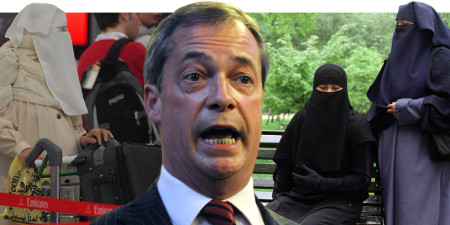
There are fears amongst senior Conservative Party officials that the release of updated immigration figures could adversely affect its electoral prospects at this month’s European elections.
It has emerged that the next set of UK immigration figures will be published by the Office for National Statistics (ONS) on 22nd May, the day of the elections to the European Parliament. Conservative strategists fear that the figures will show a substantial rise in the net immigration figure and that this will cause many Conservative voters to vote for the anti-EU, anti-immigration UK Independence Party (UKIP) instead.
The polls already forecast a terrible result for the Conservatives. Latest predictions suggest that the opposition Labour Party will win the election taking 30per cent of the vote. UKIP is forecast to come in second place with 27per cent and the Conservatives in third place with 22per cent. The Conservatives’ partners in the Coalition, the Liberal Democrats are predicted to garner only 10per cent of the vote. One major poll has predicted that UKIP may come first followed by Labour and then the Conservatives – a result that would be considered even worse for the Conservatives, since most UKIP voters are thought to align themselves with traditionally Conservative values.
Conservative strategists believe that the immigration figures will show a substantial rise because of immigration from within the EU, in particular from Romania and Bulgaria. This, they believe, is likely to anger traditional Conservative supporters and drive them either to stay at home or to switch their allegiance to UKIP
Although Romania and Bulgaria joined the EU in 2007, their citizens were only allowed to travel to live and work in the UK without restriction from January 1st 2014 after ‘transitional controls’ which prevented them from coming here expired. Prior to 2014, only certain groups such as those with skilled job offers, the self-employed and ‘highly skilled’ migrants and agricultural workers were allowed to come. While concerns that the UK would be flooded with migrants from the start of the year proved unfounded, those that did arrive appear to have put a final nail in the coffin of Mr Cameron’s 2010 election campaign pledge to peg net immigration (migrants intending to stay more than 12 months minus emigrants from the UK) at “tens of thousands” – widely interpreted as below 100,000, by the time of the 2015 General Election.
The Coalition has made many changes to try to cut the net immigration figure, but despite some initial successes the figure has recently been rising again. Some immigration experts predict that the net figure will rise back to levels approaching 2010 levels by 2015.
Measures aimed a cutting immigration since 2010 include:
- Abolishing the Tier 1 (Post Study Work) visa which allowed foreign graduates to work in the UK for two years after graduation
- Abolishing the Tier 1 (General) visa which allowed ‘highly skilled people (mainly graduates) to come to the UK and work for any employer. The Coalition claimed that at least 33per cent of those with Tier 1 (General) visas were working in low-skilled jobs.
- Introducing a cap of 20,700 on the Tier 2 (General) visa for skilled workers. (The cap is never reached but UK immigration has made it harder to qualify for the visa)
- Barring over 700 colleges from sponsoring foreign students for Tier 4 student visas
- Preventing UK citizens who earn less than £18,600 a year from bringing their foreign born spouses to live with them in the UK
By last year, the net immigration figure had fallen by about 100,000 from the 2010 figure. In the year to September 2013, net immigration was calculated as 153,000. Unfortunately, the next set of data calculating net immigration in the year to December 2013 showed that this figure had risen again by 60,000 to 212,000. Experts predict that the figures released in May, which will provide an estimate of net immigration in the year to March 2014, will show another substantial rise. This would be bad news for the Conservatives.
Firstly, it would show that the government is highly unlikely to keep the Prime Minister’s promise, which was made off the cuff on BBC politics programme, The Andrew Marr Show.
But secondly, experts predict that the rise in immigration will be made up of immigration from within the EU. UKIP says that the UK cannot control immigration while it is in the EU because all EU citizens can come and work in the UK under the core principle of freedom of movement of labour.
Recent figures show that UKIP is correct to say that the UK cannot cut immigration while EU workers can move to the UK to work. The ONS figures show that the latest rise in net immigration was caused largely by an increase in the number of continental Europeans coming to live and work in the UK.
This makes immigration a hot political issue in the EU elections. Pro-Europeans like the Liberal Democrats say that increased immigration is a price worth paying for being in the EU. UKIP on the other hand, says that the UK must leave the EU to ‘regain control of its borders’.
The difficulty for Mr Cameron is that many traditional supporters of the Conservatives agree with UKIP’s analysis. Perhaps Mr Cameron is regretting ever making his ‘tens of thousands’ pledge.









